
Listen to “Icarus”[audio:https://blog.us.playstation.com/wp-content/uploads/2011/04/DXHR-Icarus-E3-Trailer.mp3|titles=DXHR – ‘Icarus’ – E3 Trailer]
I’ve always been fascinated by video-game soundtrack composition, partly because game composers sometimes face dueling or outright contradictory objectives. For a complex, emotionally charged stealth-action game such as Deus Ex: Human Revolution the soundtrack serves multiple roles, grounding the player in the game’s rich atmosphere while staying limber enough to reflect the player’s choices, be it sweet-talking a pimp or blowing him away.
I’ve wanted to meet Composer Michael McCann ever since I heard his work in the Deus Ex: Human Revolution E3 2010 trailer. Through a series of unfortunate events, I narrowly missed meeting with him at this year’s GDC in San Francisco. Luckily, McCann jumped at the chance to share his thoughts directly with PlayStation.Blog readers, and it makes for fascinating reading whether you’re interested in Deus Ex: Human Revolution, game soundtrack creation, or none of the above.
Soundtrack Themes and “More Than Human”
Transhumanism is definitely the core theme throughout the Deus Ex series. What makes this theme so powerful is that it permeates almost every part of life – science, philosophy, art, religion, and politics. On the surface, transhumanism deals with the use of technology to push humanity beyond our physical and mental limitations – in the extreme it would be a push toward immortality. It’s obvious, especially today with the controversy behind stem cell research, that this kind of scientific advancement has consistently come into conflict with religion and politics. The power that scientific discovery ultimately yields also makes transhumanism a great foundation for conspiracy themes – another common thread throughout the Deus Ex world.
I’ve always been inspired by transhumanist themes, and there were a few ways it was represented in this score. In the game’s story there is often talk about the merits of scientific discovery – whether it’s good, moral, responsible – or in a political sense for example, whether it creates a division in classes where some people can afford access this technology while others are left behind. But out of all these themes, there is a definite struggle between the natural and the technological.
These two sides are represented in many different ways throughout the soundtrack. One key element is the duality between acoustic and electronic instrumentation – and for every cue there is a constant trade off between the two – they kind of weave in and out of each other, always fighting for priority. I also spent a lot of time manipulating the acoustic elements to sound “more than human” – editing them for perfect pitch and timing, so they become very mechanical – and often the line between acoustic and electronic is completely blurred.
Vangelis, Trent Reznor and John Carpenter
Although there is a strong Renaissance theme in the art direction (read more), most of the musical influences were modern. From the beginning, audio director Steve Szczepkowski gave me a few artists to keep in mind: Vangelis, John Carpenter, Trent Reznor and the score from the first Deus Ex. From this initial direction I needed to find a counter balance to what was predominately an electronic influence and expand into more diverse territory. To give a bunch of examples of some of the music I looked at: Dead Can Dance, Eliot Goldenthal, Vangelis, Kronos Quartet, Tangerine Dream, Cliff Martinez, Brian Eno, Ben Lukas Boysen (HECQ), Peter Gabriel, Philip Glass, Autechre, and many more.
The influence of some of these artists came more in the form of sound design within the music – basically building a very strong mood in the ambient music by mixing elements that would actually exist in the environment you’re visiting. For example, in the Hengsha section of the game, I use a lot of source recordings of traditional Asian music (folk songs, street musicians) but there are hundreds of these clips all blended together to create one large piece. If you were walking through a busy urban street, like in the Hengsha map, there would be music from bars, street musicians, cars driving by, and so on. I liked the idea of bringing in all these elements but fusing them into the actual score. In the end you have a very rich musical ambiance with rhythm, melody, and harmony, but it is built from many different unrelated sources. I think doing this also ties into the larger transhumanism theme, by incorporating very traditional forms of music but using technology to manipulate, tune, and merge them into an electronic world.
Synths were important in this score, not just because they are important to the cyber-punk world of Deus Ex, but also because they are a counterweight to the more acoustic elements in the score. I needed that balance to get the story across through the music, and synths were one of the more important electronic instruments in achieving that. Also, synths became a key way of setting a stark emotional tone, while not losing the cerebral, futuristic atmosphere we needed in many parts of the game.
Creating a “Stark Emotional State”
From very early on, Eidos Montreal (and I) were very adamant about creating an original score for Deus Ex: Human Revolution. There is one nod to a DX1 cue early in the game, but other than that it’s all new music. However, I can definitely say that tracks from the original game do appear in various ways in the game. Audio director Steve Szczepkowski created quite a few clever ways of using DX1 cues, but not in the places, or in the ways, that you’d expect.
Although it is a prequel, Deus Ex: Human Revolution is very much its own story – with unique emotions, characters, locations, visual design, and so forth. However, what I really liked about the original game’s score is the consistency of its very stark emotional state. You can really get into a trance playing the first game, and I think that’s very much due to the music. I’ve heard people describe the experience of “taking the game with you” after you’ve finished playing. I very much wanted that same quality in this soundtrack – so that the atmosphere created in the game affects you even after the game is turned off.



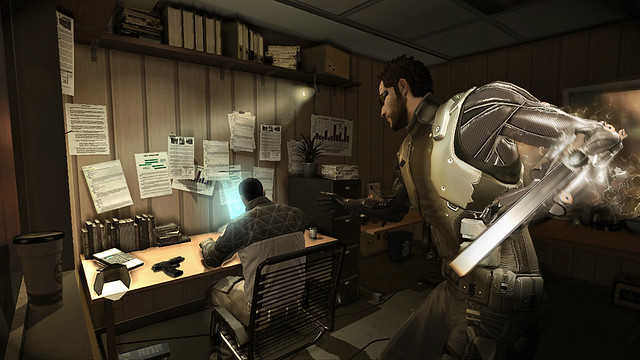
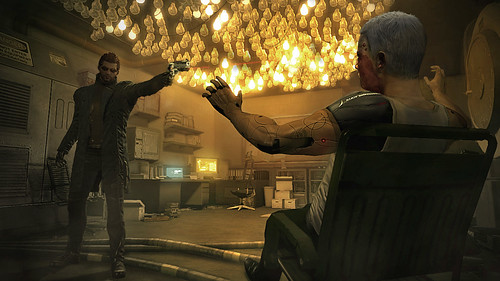
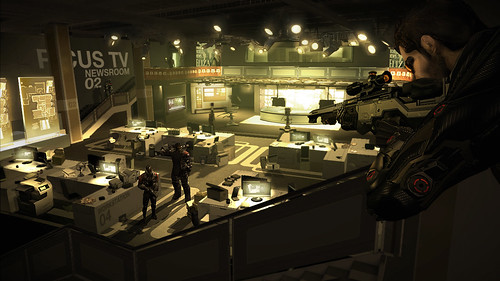
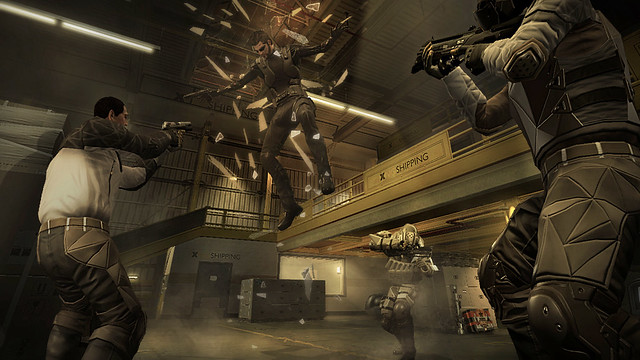


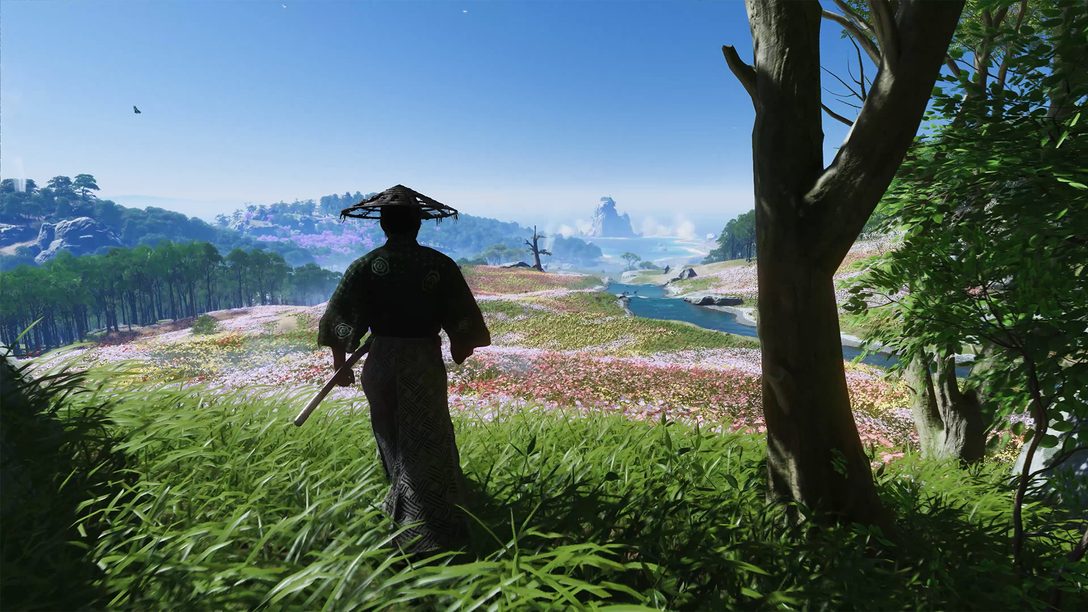
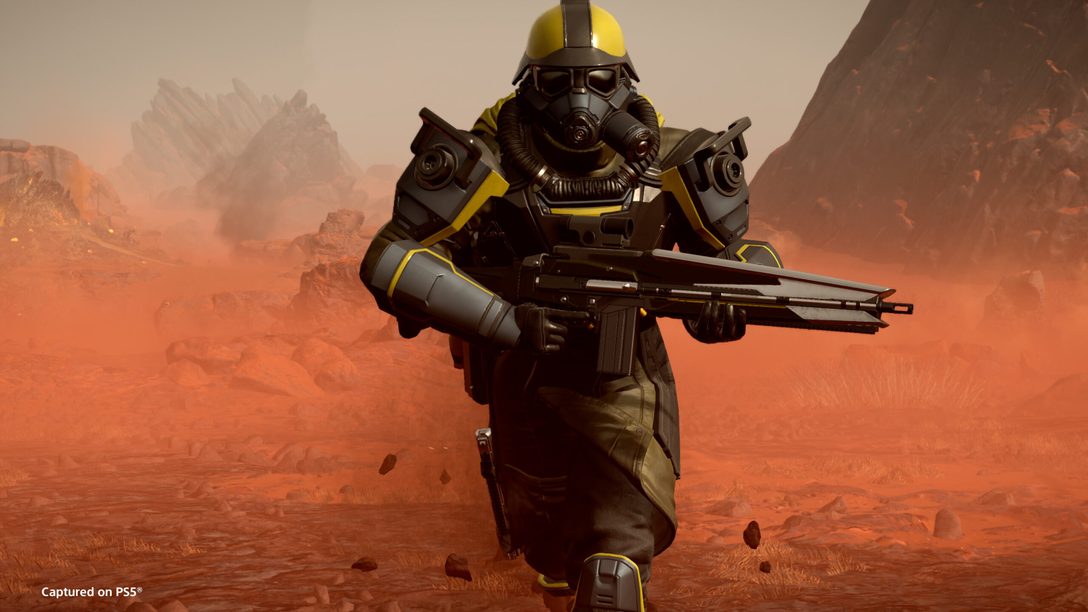


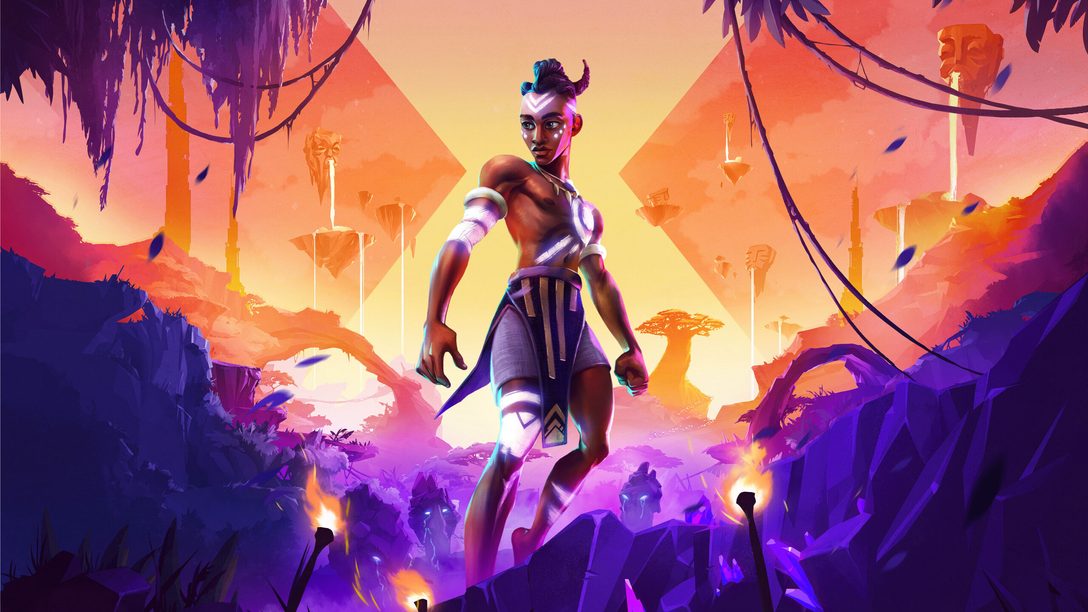

Comments are closed.
23 Comments
Loading More Comments